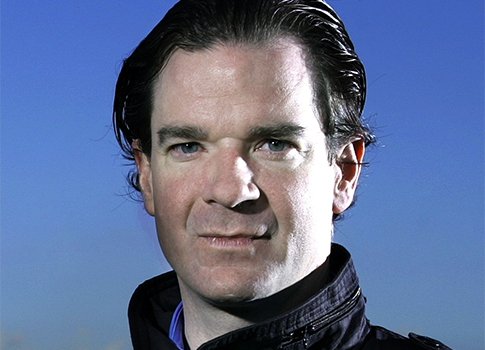Americans have an "irrational fear" of terrorism and are more likely "to be killed by a dog than a jihadi terrorist," according to a left-leaning national security expert who rejected the notion that al Qaeda is alive and well despite the terror group’s recent murder of a U.S. ambassador in Libya.
"I just think it’s a fact that al Qaeda is essentially dead," Peter Bergen, director of the New America Foundation’s (NAF) National Security Studies Program, told a crowd of reporters and foreign policy observers Tuesday during a debate on al Qaeda’s global influence. "Dead in its terms to do anything close to" the Sept. 11, 2001 terrorist attacks.
"At the end of the day, compared to 9/11, it’s a rather minor victory for these guys" to have successfully murdered U.S. Ambassador Christopher Stevens and three other Americans at the U.S. consulate in Benghazi, Bergen maintained.
Bergen’s comments drew a sharp rebuke from the panel’s more conservative participants who explained that, far from decimated, al Qaeda is buttressing its network of terrorist operatives across the greater Middle East and elsewhere.
The debate comes at a critical juncture in the conversation over U.S. intelligence failures leading up to the terrorist attacks in Libya, as the Obama administration continues to claim that al Qaeda has been "decimated" despite evidence to the contrary.
Liberal observers maintain that the attacks represent the final spasms of a terror group in its death throes, while conservative experts argue that al Qaeda is flourishing throughout a tumultuous Middle East.
Intelligence reports show that al Qaeda is "moving out into other theaters" from its traditional strongholds in Afghanistan and Pakistan, explained Bill Roggio, a senior fellow at the Foundation for Defense of Democracies (FDD).
From Libya to Yemen, Syria, and North Africa, al Qaeda has expanded its network across multiple continents, Roggio said.
"Al Qaeda is getting out of that kill box of Pakistan" and sending "operatives all over," he said. "You can see based on ISAF’s raids that this is actually true. Does this sound like a group that’s been beaten off the battlefield? Does this sound like a group that’s been defeated?"
As Western forces prepare to withdraw from Afghanistan, al Qaeda will only grow in strength, Roggio said.
"We’re leaving Afghanistan and we have no coherent policy on Pakistan," he said. "As we’re drawing down al Qaeda will increase its ties with these local [jihadist] groups."
Bergen and his New America Foundation colleagues responded that al Qaeda’s growing strength in the Arab world poses no significant problem.
The terror organization once led by Osama bin Laden is "dead in the terms of its ability to do anything close to 9/11," Bergen maintained. "Al Qaeda is now defeated, incapable of its central goal" of mounting attacks against America.
The experts quibbled over the definition of al Qaeda.
Those on the left argued that al Qaeda is a centralized group primarily concerned with attacking major sites in America and the West. FDD experts, however, said that al Qaeda is as much a philosophy as a terror organization, with small, affiliated networks operating across the globe.
America should be the "main concern," NAF’s Bergen stated, "not other people’s national security." The Twin Tower attacks were "misunderstood at the time. It was seen as the beginning of something, but was actually the end of something."
Just because groups claiming to be affiliated with al Qaeda are "striking in Libya and other places, [that does not] mean they’re al Qaeda affiliates," retired Col. Thomas Lynch, a distinguished research fellow at National Defense University, told attendees. "I suggest we take a different look, a more critical look, and not give credence to the proposition that al Qaeda still exists as a core."
Refuting Bergen’s argument that dogs and "bathtubs" kill more Americans than terrorists, FDD’s Roggio said, "Dogs and bathtubs don’t plan to kill Americans, and al Qaeda has."
With evidence that al Qaeda is increasing its activities in North Africa, Egypt, Libya, Iraq, and Syria, the group poses a "threat to entire region," argued Thomas Joscelyn, a senior FDD fellow. "In some ways al Qaeda’s brand has been hurt, … but we can't just blasé say it’s over and not worry about it."
